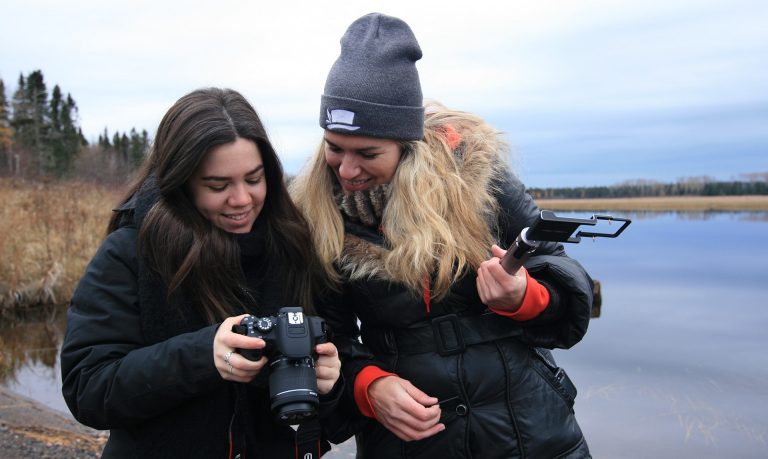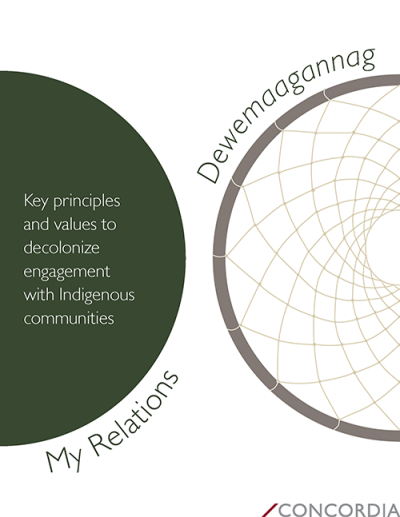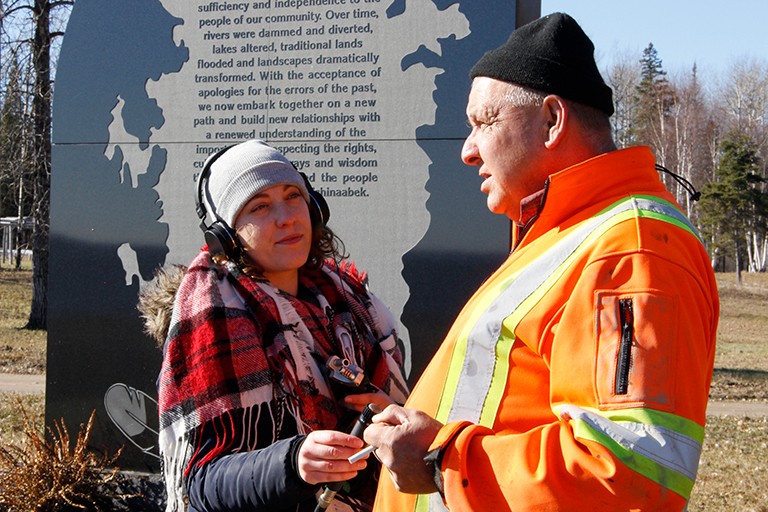A guide to building new relationships
At a recent workshop to share ideas based on her efforts to decolonize her work, Salas discussed how she learned about the importance of listening and relationship-building since starting her projects in 2017. These principles are outlined in the My Relations guide, a workbook for non-Indigenous people to learn how to transform relationships with Indigenous Peoples, produced by Concordia’s Office of Community Engagement (OCE).
Salas explains how she learned, tentatively at first, to be patient, listen and slowly build genuine connections with Indigenous community members. She came to understand that this work requires first developing a deep understanding of the community’s needs and concerns.
By adopting a stance of humility and openness, Salas says she’s been able to build trust and mutual respect, laying the foundation for meaningful and impactful journalism. This approach, which challenges the conventional relationship between journalists and the people they cover, has enabled her to co-create stories for a digital audience that authentically reflect the experiences of the Indigenous communities with whom she has worked.
Salas’s 20-year career in journalism helped give her credibility, and she leveraged this privilege to open doors for a collaboration with a national broadcaster. “When I went back to CTV to discuss working with them, they trusted me and they were open to me taking a new approach based on reconciliation,” she notes.




 Former journalism student and current CBC reporter Virginie Ann with Stanley King, resident of Kiashke Zaaging Anishinaabek-Gull Bay First Nation. | Photo: Aphrodite Salas
Former journalism student and current CBC reporter Virginie Ann with Stanley King, resident of Kiashke Zaaging Anishinaabek-Gull Bay First Nation. | Photo: Aphrodite Salas


